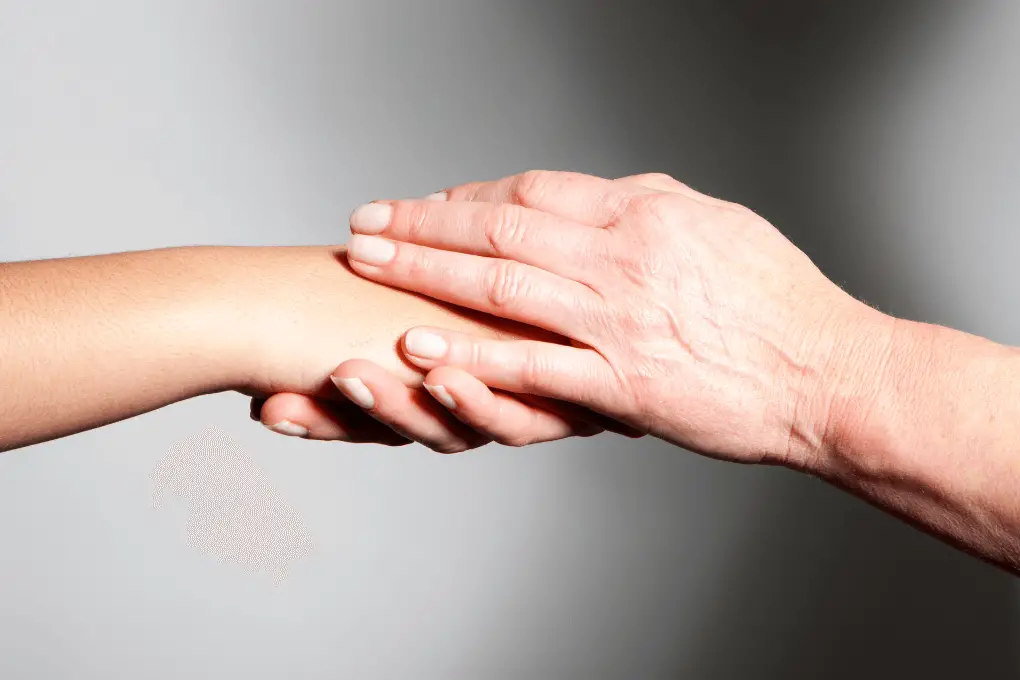Dealing with toxic people can be a real challenge. Whether in the workplace or personal life, these negative individuals have a way of draining our energy and making us feel miserable.
However, there are effective strategies that you can use to deal with them and maintain your happiness. In this article, we will explore 10 proven techniques for coping with toxic people in your life.
From setting boundaries to practicing self-care, each strategy is designed to empower you and help you take control of any situation. With these tools at your disposal, you’ll be able to navigate challenging relationships with confidence and grace – no matter how challenging they may seem at first glance!
Table of Contents
Recognizing Toxic Behavior

To effectively deal with toxic people in your life, it’s essential first to recognize what constitutes toxic behavior. This can be difficult because sometimes the behavior is subtle and disguised as something else. However, there are some common signs that you can look out for.
One sign of toxic behavior is when someone consistently puts you down or criticizes you. They may make snide remarks about your appearance or abilities or belittle your accomplishments.
Another sign is when someone tries to control you or manipulate you into doing things their way. They may use guilt trips or threats to get their way.
Finally, another red flag is when someone constantly creates drama and chaos in your life. They may thrive on conflict and seem to enjoy stirring up trouble wherever they go.
If any of these behaviors sound familiar, it’s time to look closely at the person causing them and consider setting some boundaries.
Speaking of boundaries…
The Importance Of Boundaries

Boundaries are essential when dealing with toxic people in your life. Setting boundaries means defining acceptable and unacceptable behavior from others. It can be challenging to set limits, especially if you’re used to accommodating or pleasing others. However, without clear boundaries, toxic people will continue to push the limits until they cross a line.
The importance of boundaries lies in their ability to protect your emotional wellbeing. Toxic people often manipulate or gaslight their victims into believing that their behaviors are normal or even justified. By setting healthy boundaries, you establish rules for yourself and others on how you want to be treated. This way, you take back control of your emotions and avoid being consumed by negativity.
Setting boundaries requires courage and practice. You may face resistance or backlash from toxic individuals who are not used to respecting others’ limits. But remember that everyone deserves respect and dignity, including yourself. When you create healthy boundaries, you show self-respect and demand the same level of consideration from others.
As important as setting boundaries is communicating them effectively. Without proper communication skills, your efforts may go unnoticed or misunderstood by those around you.
In the next section, we’ll explore practical ways of assertively communicating while maintaining respectful relationships with those around us.
Communicating Effectively

Just like a ship needs a sturdy anchor to stay in place, we, too, need boundaries to ground us and give us stability. Setting healthy limits is crucial when dealing with toxic people in our lives. Boundaries allow us to protect ourselves while maintaining relationships that are important to us.
However, it’s not enough just to set boundaries; effective communication is also essential. It can be challenging to communicate with someone who tends to be manipulative or aggressive, but there are ways to get your point across without escalating the situation.
One approach is to use ‘I’ statements instead of ‘you’ statements. For example, saying ‘I feel disrespected when you raise your voice at me,’ rather than, ‘You’re always so disrespectful!’ This shift takes the focus off the other person and puts it on how their behavior affects you personally.
Staying calm and avoiding confrontation can also help diffuse tense situations. When emotions run high, it’s easy for conversations to turn into arguments or even physical altercations. Instead of reacting impulsively, take a deep breath and try to remain composed.
Keeping a cool head will not only prevent things from escalating but may also encourage the other person involved in the conflict to do the same. In the next section, we’ll explore more techniques for staying calm during difficult interactions with toxic individuals.
Staying Calm And Avoiding Confrontation

As tempting as it may be to engage in a heated argument with a toxic person, staying calm and avoiding confrontation is often the best course of action.
When we allow ourselves to become emotionally charged, we give power to the other person and lose our ability to reason. This can lead us down a path that only creates more stress and negativity.
One effective strategy for staying calm is to practice deep breathing techniques or meditation. By taking slow, deep breaths, we can center ourselves and regain control over our emotions.
Additionally, removing ourselves from the situation by physically leaving or redirecting the conversation can help de-escalate tensions.
It’s important to remember that toxic people thrive on conflict and drama. They often try to provoke others into an argument to feel powerful or validated.
By refusing to engage in these behaviors, we take away their source of power and prevent them from dragging us down into their negative spiral. Instead, we can focus on maintaining our own inner peace and wellbeing.
Focusing On Solutions, Not Problems

As we discussed earlier, staying calm and avoiding confrontation can be an effective strategy for dealing with toxic people. However, it’s essential to also focus on finding solutions.
One way to do this is by shifting your mindset from dwelling on the problems caused by toxic people to thinking about possible solutions. Instead of getting caught up in negative thoughts or venting about the situation, try brainstorming ways to address the issue. This could involve setting boundaries, seeking outside help or support, or even removing yourself from the toxic person’s presence altogether.
Another helpful approach is practicing empathy and compassion towards yourself and the toxic individual. Recognize that everyone has their own struggles and challenges, which may be contributing to their behavior.
At the same time, it’s crucial to prioritize your wellbeing and set healthy boundaries when necessary. By approaching the situation with a compassionate yet assertive attitude, you may find that you can navigate difficult relationships more effectively.
Practicing Empathy And Compassion

Practicing empathy and compassion is one of the most effective ways to deal with toxic people in your life. It can be challenging at first, especially if you’ve been hurt or betrayed by someone. However, empathizing with their situation and understanding where they’re coming from can help you be more patient and compassionate towards them.
Empathy means putting yourself in another person’s shoes and trying to understand their thoughts, feelings, and motivations. When dealing with a toxic person, this can mean acknowledging that they may have experienced trauma or difficulties that led them to act negatively toward others.
Compassion involves responding to someone’s suffering with kindness and understanding. By practicing empathy and compassion towards toxic people in your life, you are not excusing their behavior but instead responding to it in a way that promotes healing instead of perpetuating negativity.
Finding Supportive People

Building a support system can be challenging, but it’s essential for maintaining mental health and wellbeing. One effective strategy is finding supportive people who can offer guidance and encouragement.
Seek out friends or family members who are empathetic listeners and non-judgmental supporters. Joining a support group or therapy session can also provide a safe space to discuss your experiences and receive feedback from others in similar situations.
It’s crucial to remember that seeking support does not make you weak; instead, it shows strength and resilience. Having positive relationships with people who uplift you can counteract the negative impact of toxic individuals in your life.
So reach out to those who bring positivity into your life, as they will likely be instrumental in helping you navigate interactions with difficult people.
Seeking Professional Help

It’s okay to admit when you need more than what your current network can provide. Seeking guidance from professionals like therapists or counselors can offer valuable insights and tools for managing complex relationships.
Professional help allows individuals to receive unbiased advice and feedback on their situation while providing a safe space to process emotions. These trained professionals are equipped with the knowledge and skills to guide individuals toward better understanding themselves and others in toxic relationships.
Again, asking for help isn’t a sign of weakness but rather an act of courage. By taking the initiative to seek professional assistance, you show commitment toward personal growth and mastery.
Additionally, identifying areas where additional support is needed demonstrates self-awareness, another critical aspect of navigating challenging relationships.
Taking Time For Self-Care
Building a support system alone may not completely eliminate the negative impact of toxic relationships. It’s also essential to take time for self-care. This means prioritizing activities that promote physical and mental wellbeing, such as exercise, meditation, or spending time outdoors.
Letting Go Of Toxic Relationships

So you’ve finally realized that the toxic people in your life are doing more harm than good. Congratulations! You’ve taken the first step towards living a happier and healthier life.
But now comes the hard part – letting go.
It’s not easy to cut ties with someone, especially if you have a history together or feel like you owe them something. But remember, this is about taking care of yourself. It’s okay to prioritize your wellbeing over maintaining toxic relationships.
One way to start is by setting boundaries. Let the person know how their behavior affects you and what you’re willing (or unwilling) to tolerate. If they continue to disrespect your boundaries, it might be time to let them go for good.
Remember, you deserve respect and kindness in all your relationships – don’t settle for less.
Moving Forward With Confidence

Letting go of toxic relationships can be a challenging but necessary step toward a happier and healthier life. Once you have cut ties with those who bring negativity into your world, it’s time to focus on confidently moving forward.
Surround yourself with positive influences. Seek out friends, family members, or mentors who uplift and support you. Engage in activities that bring joy and fulfillment, whether it’s reading, painting, or hiking. By filling your life with positivity, you’ll be less likely to attract toxic people back into your circle.
Moving forward with confidence also requires taking care of yourself. Prioritize self-care practices like exercise, healthy eating habits, meditation, or therapy sessions, if needed. Invest in your personal growth by setting goals for yourself and working towards them each day.
With the right mindset and tools at your disposal, there’s no limit to what you can achieve without toxic people holding you back.
Frequently Asked Questions
How do I recognize toxic behavior in myself?
Like a chameleon blending into its surroundings, toxic behavior can be hard to detect within ourselves. But it’s not impossible. Recognizing and addressing these traits takes courage and self-awareness, qualities essential in the pursuit of personal growth and mastery.
It starts with an honest assessment of our actions, thoughts, and emotions. Are we quick to criticize? Do we blame others for our problems? Are we prone to manipulation or passive-aggressive behavior?
Once we identify these patterns, we can take steps towards change by seeking feedback from trusted friends or professionals, practicing mindfulness, setting healthy boundaries, and building empathy and compassion for ourselves and others.
What do I do if the toxic person is a family member or close friend?
If you find yourself dealing with a toxic family member or close friend, it can be tough to navigate the situation.
It’s natural to want to maintain relationships with those closest to us, but sometimes that means tolerating behavior that ultimately harms us.
The first step is recognizing and acknowledging the toxicity in your relationship.
From there, set boundaries and communicate clearly about what behaviors are unacceptable.
Remember that you have the power to choose who you surround yourself with and prioritize your wellbeing above all else.
How do I set boundaries without feeling guilty or like I’m being rude?
Setting boundaries with toxic people in your life can be tricky, especially if they are close to you. You may feel guilty or worry that you’re being rude by doing so. But for your mental and emotional wellbeing, you need to establish healthy limits.
Start by identifying what behaviors from the toxic person make you uncomfortable and determine what is acceptable behavior for them going forward. Then, calmly communicate your needs and expectations while listening to their perspective.
Remember that setting boundaries is not about changing someone else’s behavior but protecting yourself from harm. With practice, boundary-setting will become more manageable, and you’ll begin to feel more confident in managing interactions with toxic people.
What if the toxic person refuses to listen or change their behavior?
It can feel frustrating and overwhelming, but remember that you only have control over your own actions. Continuing to engage with the toxic person may only perpetuate the cycle of negativity.
Instead, focus on setting clear boundaries and communicating them calmly and assertively. If necessary, limit your interactions with this person or cut ties altogether for the sake of your mental health.
Remember that it is not selfish to prioritize your wellbeing, even if it means distancing yourself from someone toxic.
How can I avoid attracting toxic people into my life?
It’s time to take control.
First, reflect on patterns in the types of people you tend to attract and why. Consider whether you have clear boundaries and if you communicate them effectively.
Trust your instincts when meeting new people, and don’t ignore red flags.
Practice self-care regularly to increase your confidence and sense of self-worth.
Remember, it’s okay to say no or distance yourself from those who do not align with your values. By taking these steps, you can proactively avoid toxic relationships in the future and cultivate more positive connections with others.
Key Takeaways on How to Deal with Toxic People

Dealing with toxic people can be a challenging and draining experience. However, there are effective strategies you can implement to protect yourself and maintain your mental health.
Remember to recognize the signs of toxic behavior in yourself so that you don’t inadvertently project it onto others.
Setting boundaries is crucial when dealing with toxic people, even if they’re family or close friends. Don’t feel guilty for prioritizing your wellbeing; it’s necessary for a healthy relationship.
And if the toxic person refuses to listen or change their behavior, remember that it’s not your responsibility to fix them.
Ultimately, surrounding yourself with positive and supportive individuals will help prevent attracting more toxicity into your life.
Disclaimer: This post may contain affiliate links. Meaning, if you click on one of the product links, I will earn a small commission at no cost to you. Thank you for supporting Creativity Mesh.
Why Trust Creativity Mesh? At Creativity Mesh, our mission is to help you unlock your creative potential, increase your productivity, and achieve your personal and professional goals. We provide well-researched, informative, and actionable content focused on topics related to creativity, productivity, and self-development. We are committed to being transparent, honest, and unbiased in everything we do. Our content is designed to help you make informed decisions and take meaningful action to improve your life. Thank you for choosing Creativity Mesh as your trusted source for creativity, productivity, and self-development.






